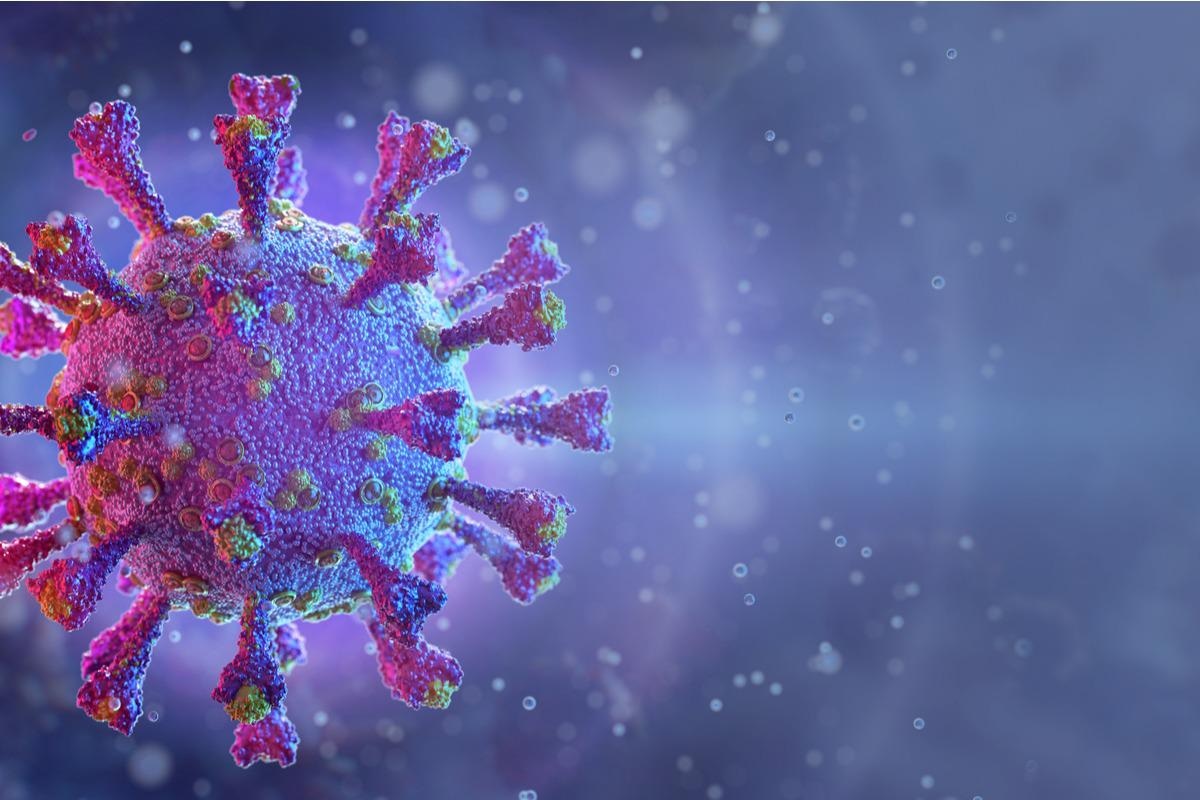Increased inflammation via cytokine storms has led to multiple heart complications in coronavirus disease 2019 (COVID-19) infections. But in order to treat these cardiovascular problems, doctors will need a better understanding of the relationship between cytokine storms and cardiovascular proteins.
New research suggests that Th1, Th2, and Th17 inflammatory pathways are involved in the overproduction of cardiovascular-associated protein in COVID-19 infections. Th1 cytokines have an established role as mediators against viral infections. Th2 and the Th17 inflammatory pathways are signals during a severe autoimmune response.
The findings may help doctors choose effective treatment regimens for patients with heart complications. They suggest using immunomodulators to decrease cardiovascular inflammation and avoid stifling the immune system’s ability to fight severe acute respiratory syndrome coronavirus 2 (SARS-CoV-2).
 Study: Th1, Th2 and Th17 inflammatory pathways synergistically correlate with cardiometabolic processes. A case study in COVID-19. Image Credit: Corona Borealis Studio/Shutterstock
Study: Th1, Th2 and Th17 inflammatory pathways synergistically correlate with cardiometabolic processes. A case study in COVID-19. Image Credit: Corona Borealis Studio/Shutterstock
The study was recently published on the preprint bioRxiv* server whilst the article undergoes peer review.

 This news article was a review of a preliminary scientific report that had not undergone peer-review at the time of publication. Since its initial publication, the scientific report has now been peer reviewed and accepted for publication in a Scientific Journal. Links to the preliminary and peer-reviewed reports are available in the Sources section at the bottom of this article. View Sources
This news article was a review of a preliminary scientific report that had not undergone peer-review at the time of publication. Since its initial publication, the scientific report has now been peer reviewed and accepted for publication in a Scientific Journal. Links to the preliminary and peer-reviewed reports are available in the Sources section at the bottom of this article. View Sources
Cytokine levels in T-helper cell pathways
The researchers compared the cytokines in patients who were or were infected with SARS-CoV-2.An increasing trend in protein expression in most Th1 and Th17 mediators (and in more than half of Th2 mediators) was seen in COVID-19 cases. Protein levels increased from non-severe infections to patients who died from COVID-19 illness. Deceased COVID-19 patients had significantly high Th1, Th2, and Th17 levels. Patients with non-COVID respiratory infections had no increasing trends in protein expression in inflammatory pathways.
Link between cardiometabolic protein and severity of COVID-19 illness
The second phase of research looked at any existing relationship between cardiometabolic protein and COVID-19 infection. Of the 335 cardiometabolic proteins studied, about 35 were strongly linked to the severity of COVID-19 illness. Additionally, all 35 proteins were expressed at significantly elevated levels in patients who died from COVID-19 illness. Ten cardiometabolic proteins were highly expressed in intubated patients with COVID-19 compared to patients with mild illness.
Cytokine storms contribute to COVID-19 related heart complications
The research team next tested their hypothesis that Th1, Th2, and Th17 cytokines are involved in altering cardiometabolic proteins. They grouped immune markers for each pathway and analyzed their frequency of expression for each cardiometabolic protein present in patients with COVID-19 infection.
Results showed 186 connections between cytokines and cardiometabolic proteins expressed in COVID-19 infection. Specifically, a synergistic effect between Th1, Th2, and Th17 immune pathways and proteins was observed.
The researches explained that,
Most of the links in our networks were positive connections, suggesting that an increased production in cytokines stimulates the overall production of cardiometabolic proteins”.
Of the 35 cardiometabolic proteins correlated with severe COVID-19 infection, 31 were predictive factors for cytokine storms. In fact, 20 of the 31 proteins were also linked to cardiovascular inflammation and hypertension in other research studies. The 20 proteins were most associated with IFNGR1 of the Th1 pathway. In the TH2 pathway, the most common association was with CCL11 and CCL7. In the Th17 pathway, the 20 cardiovascular markers were highly linked to PI3, LCN2, and IL6 cytokines.
Study limitations and future directions
The study used a limited OLINK assay analysis to identify associations between immune mediators in inflammatory pathways and cardiometabolic proteins. An alternative technique that may have yielded more descriptive and accurate results is whole-genome sequencing.
A second limitation is that because of the many unknowns surrounding SARS-CoV-2 at the start of the pandemic, many COVID-19 cases were initially misdiagnosed. Wrong diagnoses may change the predictiveness of cardiovascular markers with COVID-19 severity.
Future research is needed to explore the link between helper T-cells and heart inflammation. This should focus on a more detailed comparison between the cardiovascular and immune pathways and how they interact with viral infections beyond SARS-CoV-2.
Further studies exploring relationships between two systems could provide a complete picture of immune-cardiovascular interaction in sickness and in health.

 This news article was a review of a preliminary scientific report that had not undergone peer-review at the time of publication. Since its initial publication, the scientific report has now been peer reviewed and accepted for publication in a Scientific Journal. Links to the preliminary and peer-reviewed reports are available in the Sources section at the bottom of this article. View Sources
This news article was a review of a preliminary scientific report that had not undergone peer-review at the time of publication. Since its initial publication, the scientific report has now been peer reviewed and accepted for publication in a Scientific Journal. Links to the preliminary and peer-reviewed reports are available in the Sources section at the bottom of this article. View Sources